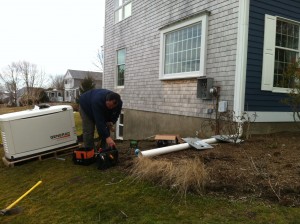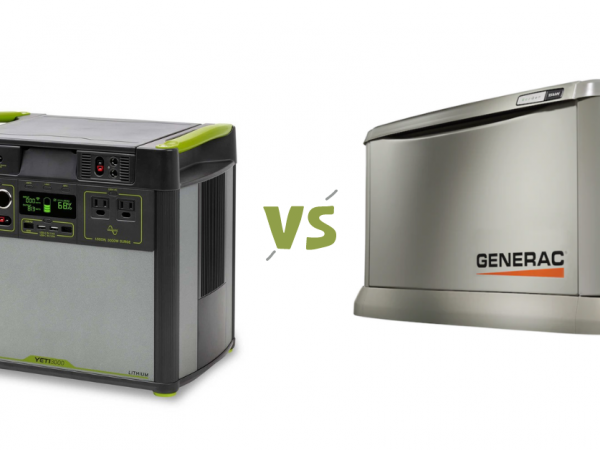Severe weather threatens both your safety and property. Will a tree fall? Is the basement flooding? The last thing you want to worry about is losing power. Yet it happens – for hours, or sometimes days – and it’s best to be prepared.
That preparation (and peace of mind) comes in the form of a generator – a lifesaver during power outages. Sure, it’s nice to avoid stumbling around in the dark. But more importantly, generators can protect your family from extreme temperatures; prevent the food in your refrigerator from spoiling; and keep medical devices working without interruption.
Before you purchase a generator, do your homework! Meet with an electrician to decide what’s right for your home, budget and power needs. Here’s an overview:
Portable Generators: Portable generators are a means of temporary power, and don’t kick on automatically during an outage. Also, they run on gasoline, which you’ll need to have on hand since gas pumps often don’t work during an outage. They’re great for camping and light needs but won’t keep more than a few appliances running temporarily when you lose power.
Stationary or Automatic Generators: Larger, permanent units. They’re professionally installed a safe distance from your home to avoid carbon monoxide poisoning. They run on natural gas or propane, and are very powerful, keeping more of the household up and running. Stationary generators also have extended run times. They can be programmed to boot up automatically when the power goes out, so there’s no power interruption.
Whatever your preference, generators are a great way to ensure your safety and well-being, regardless of the weather!




